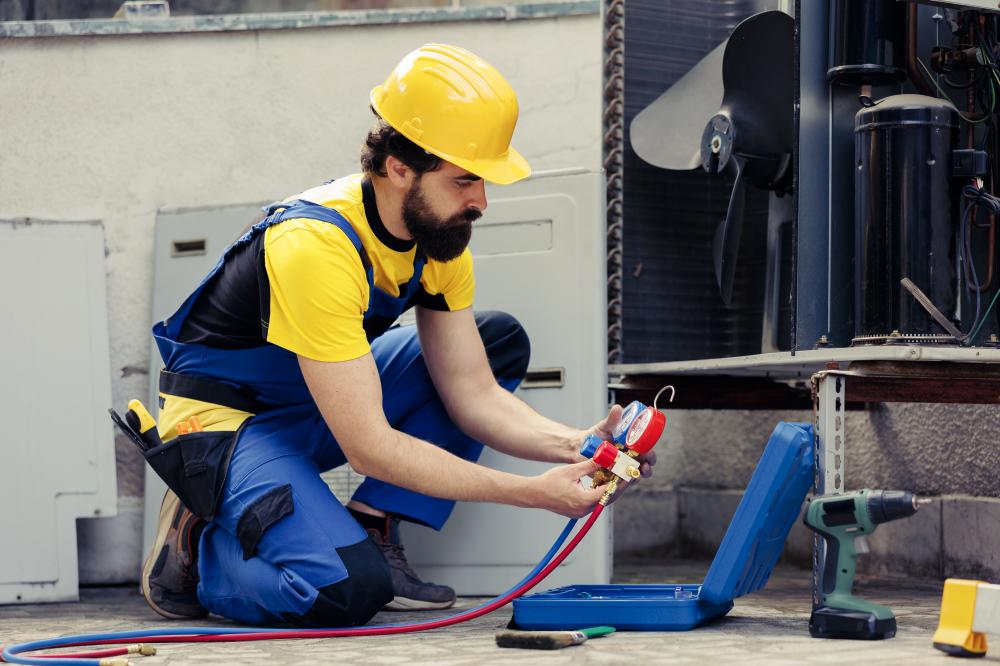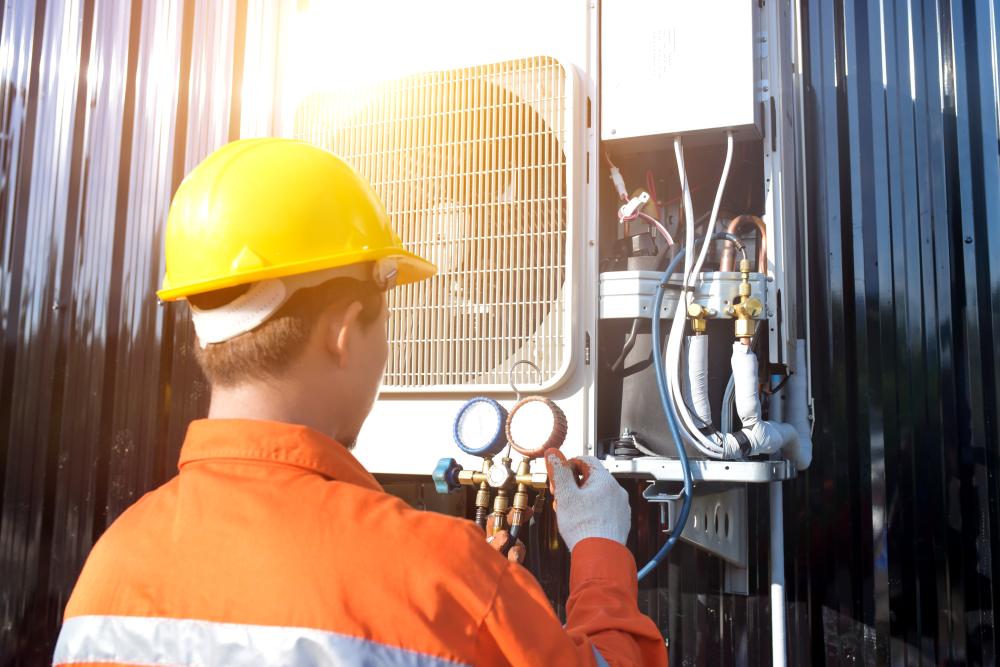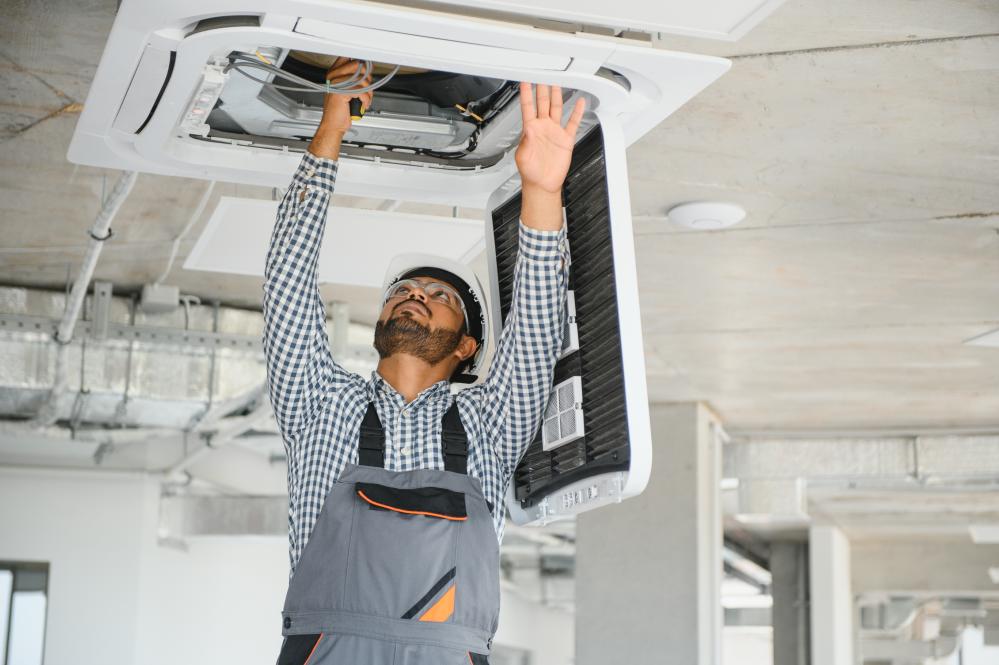Hvac Maintenance Technician

A Day in the Life of an HVAC Repair Technician
As someone who's had the pleasure of collaborating with skilled professionals at Home Alliance, I can attest to the multifaceted nature of being an HVAC maintenance technician. These technicians start their day early, equipped with the tools of the trade and ready to tackle a variety of HVAC-related challenges. Their morning might begin with a scheduled maintenance for a residential client, ensuring that heating units are functioning efficiently and identifying potential issues before they escalate.
The workday often leads them from one unique environment to another, from bustling commercial spaces to quiet suburban homes. Each location presents its own set of demands and expectations. As a result, adaptability and keen problem-solving skills are essential attributes of an HVAC maintenance technician. They must diagnose issues promptly, communicate effectively with clients, and execute repairs or maintenance tasks with precision.
But it's not all about technical prowess. Soft skills play a significant role too. A technician must be empathetic and patient, addressing customer concerns and reassuring them about the reliability and longevity of their HVAC systems. This people-centric approach is a hallmark of Home Alliance, resonating in the trust and confidence placed in their experts.
Skills Required for Excellence
The role of an HVAC maintenance technician demands a cocktail of technical and interpersonal skills. These professionals are expected to master the intricacies of HVAC systems, including an in-depth understanding of heating, cooling, and ventilation mechanisms. Certification in HVAC technologies provides the foundational knowledge critical to address the diverse needs of home and business owners.
Beyond technical competence, attention to detail is a non-negotiable trait for success. With the vast array of HVAC components, a meticulous approach is required for error-free installations and repairs. Technicians must also be adept at using advanced diagnostic tools, a skill that sets apart the exceptional from the average in this field.
Interpersonal skills form the backbone of effective customer interaction. The ability to explain complex technical issues in layman's terms and provide thoughtful maintenance advice encourages client satisfaction and loyalty. At Home Alliance, technicians are trained in these soft skills, ensuring every customer interaction leaves a lasting positive impression.
Continuous learning and upskilling are also pivotal, especially with the HVAC industry constantly evolving. Staying abreast with the latest technological advancements and industry standards is crucial for maintaining the high service standards at organizations like Home Alliance.
Challenges Faced on the Job
Being an HVAC maintenance technician isn't without its challenges. One of the primary hurdles is the unpredictability of HVAC system issues. From unexpected equipment failures to the sudden need for system overhauls, technicians must maintain composure and think quickly under pressure. The ability to anticipate problems before they become critical is a skill honed with experience and ongoing training.
Weather plays its part too. In peak summer months, technicians often work long hours to address the high demand for air conditioning repairs and maintenance. Conversely, winter calls for urgent heating system services as clients seek relief from the cold. The seasonal nature of the work demands physical stamina and a readiness for prolonged work hours, but the satisfaction of restoring comfort to clients' spaces makes it worthwhile.
Lastly, safety is a paramount concern. Handling electrical components and refrigerants requires strict adherence to safety protocols to prevent accidents. Home Alliance prioritizes technician safety, providing necessary equipment and training to mitigate risks and ensure a secure working environment.

Exploring the Role of an HVAC Technician
The role of an HVAC technician is an integral one, particularly in ensuring the comfort and safety of both residential and commercial spaces. At Home Alliance, I've seen firsthand how these skilled professionals tackle tasks ranging from simple thermostat adjustments to complex system installations. An HVAC technician often works in diverse environments, reflecting their adaptability and expertise. They must juggle tools, understand intricate systems, and apply knowledge to solve heating and cooling issues efficiently. These experts are not only crucial for repairing malfunctioning units, but also for advising on energy efficiency to help clients save on utility bills.
Each day presents new challenges for an HVAC technician. Whether responding to an emergency call in the middle of a blistering summer night or meticulously cleaning air ducts in preparation for a snowy season, no two days are the same. This dynamic work environment requires an ongoing commitment to learning about new technologies and methods to maintain proficiency. Through continuous training and certifications, technicians stay ahead in this constantly evolving field, which reflects the dedication of organizations like Home Alliance to excellence in service delivery.
Invaluable Skills and Expertise
One of the most valued skills an HVAC technician brings to the table is troubleshooting. I recall working alongside technicians at Home Alliance who could diagnose issues with remarkable precision, a skill developed through years of hands-on experience and training. This knack for problem-solving isn't just about technical ability; it's also about listening to customer concerns and addressing them with empathy and understanding. Communicating effectively with clients is just as crucial as handling sophisticated HVAC systems.
As technology progresses, the modern HVAC technician must keep abreast of new developments, such as digital thermostats and smart home systems. Embracing these advances not only enhances the quality of service but also empowers clients to manage their environments more effectively. For instance, while working on an HVAC installation, it's not uncommon to integrate these smart technologies, providing a holistic solution that meets contemporary demands. For Home Alliance, this approach reinforces our commitment to delivering comprehensive services that cater to the unique needs of each client, ensuring satisfaction and reliability.
Collaboration is another essential skill that enhances the effectiveness of an HVAC technician. Within a team, sharing insights and learning from each other's experiences can significantly improve service quality. At Home Alliance, technicians often collaborate to address complex challenges, ensuring that no issue is too daunting. This synergy within our team allows us to offer top-notch service to clients, leaving a lasting impression.
Beyond technical prowess, an HVAC technician must possess strong customer service skills. After all, clients remember how you made them feel just as much as the technical results. Providing clear explanations, offering practical advice, and ensuring transparency in service delivery are hallmarks of an excellent technician. Such skills are particularly vital during emergency repairs where the stakes are high, and the pressure is on.
Impact and Future of the HVAC Field
With climate change and energy conservation becoming more prominent concerns, the role of an HVAC technician has never been more important. The push for greener technology and energy-efficient solutions means these professionals increasingly find themselves at the forefront of sustainable practices. At Home Alliance, our technicians often guide clients toward environmentally-friendly options that reduce carbon footprints while maintaining comfort.
The demand for skilled HVAC technicians is expected to continue growing. As buildings become more complex and systems more sophisticated, the expertise of these professionals remains crucial. My experiences at Home Alliance have shown me that fostering a culture of continuous learning and adaptation is essential for staying relevant in this ever-evolving field. By investing in professional development, we ensure our team is not only prepared for today's challenges but also equipped to tackle the future.
Ultimately, the future of HVAC work will likely involve even greater integration of technology and sustainability practices. As part of our commitment to excellence, Home Alliance continuously evaluates new innovations and adapts best practices. An HVAC technician must be prepared to embrace these changes, turning challenges into opportunities to provide superior service. Together, we are shaping a more efficient, comfortable, and environmentally conscious future one HVAC solution at a time.

What is the role of an HVAC maintenance technician?
At Home Alliance, an HVAC maintenance technician plays a crucial role in ensuring the comfort and efficiency of both residential and commercial spaces. We start our day ready to tackle anything from routine maintenance checks to emergency repairs. Our primary responsibility is to maintain and ensure the proper functioning of heating, cooling, and ventilation systems. This can involve diagnosing issues, performing repairs, and conducting regular inspections to prevent future problems. It's a job that requires not only technical skills but also strong communication abilities because we deal directly with clients and must explain complex tech in an easy-to-understand way. Working in diverse environments keeps us on our toes, and adapting to various challenges is part of what makes the role both rewarding and exciting.
What are the four types of maintenance for HVAC systems?
In the HVAC industry, maintenance typically falls into four main categories: corrective, preventive, predictive, and risk-based maintenance. Corrective maintenance is what we often think of as repairs; it's what we do at Home Alliance when something goes wrong. Preventive maintenance involves regular inspections and service to prevent problems before they occur, such as seasonal HVAC check-ups. Predictive maintenance uses technology to monitor systems and anticipate when maintenance should be performed, increasing efficiency. Lastly, risk-based maintenance assesses the likelihood of equipment failure and prioritizes resources accordingly. Each of these approaches helps ensure systems run efficiently, prolong their lifespan, and increase overall reliability for our clients.
What is the difference between an HVAC mechanic and an HVAC technician?
At Home Alliance, we often encounter questions about the distinction between an HVAC mechanic and an HVAC technician. While the terms are sometimes used interchangeably, there is a subtle difference. An HVAC mechanic typically focuses on the hands-on repair and replacement of parts. In contrast, an HVAC technician encompasses a broader scope, including diagnostics, customer interaction, and sometimes even system design. Our technicians are trained to not only fix issues but to provide consultations and advice, ensuring clients make informed decisions about their HVAC systems. This holistic approach is a hallmark of our service at Home Alliance, providing comprehensive solutions to all HVAC needs.
How much does an HVAC technician cost?
The cost of hiring an HVAC technician can vary widely based on several factors, such as the complexity of the job, geographical location, and the time of service. At Home Alliance, we strive to provide transparent and competitive pricing. Generally, costs may range from $75 to $200 per hour for labor, but this can increase for emergency services or during peak seasons. We always aim to offer value for money, ensuring the work we perform is both efficient and long-lasting. It's always best to contact us for a personalized quote based on your specific needs so you know exactly what to expect.
How are technological advancements impacting the HVAC field?
Technology is revolutionizing the HVAC field, and at Home Alliance, we embrace these changes to enhance our services continually. Modern HVAC systems now often incorporate smart technology that enables remote monitoring and control, which can drastically improve energy efficiency and user convenience. Our technicians are trained on these latest advancements, like digital thermostats and home automation integrations, which not only help us to solve issues more efficiently but also offer our clients more control over their energy usage and comfort settings. The integration of AI and IoT in our work is paving the way for more sustainable solutions, reflecting our commitment to staying at the forefront of the industry and providing innovative services to our clients.
Resources
- Bureau of Labor Statistics - The Bureau of Labor Statistics provides data on the HVAC industry, including job outlook, salary information, and training requirements.
- Environmental Protection Agency (EPA) - The EPA offers resources on environmental regulations, energy efficiency, and refrigerant management for HVAC technicians.
- American Society of Heating, Refrigerating and Air-Conditioning Engineers (ASHRAE) - ASHRAE sets industry standards for HVAC systems and provides technical resources for professionals in the field.
- ENERGY STAR - ENERGY STAR provides information on energy-efficient HVAC products and practices to help reduce energy consumption and costs.
- North American Board of Certified Energy Practitioners (NABCEP) - NABCEP offers certifications for renewable energy professionals, including those working in the HVAC industry.

